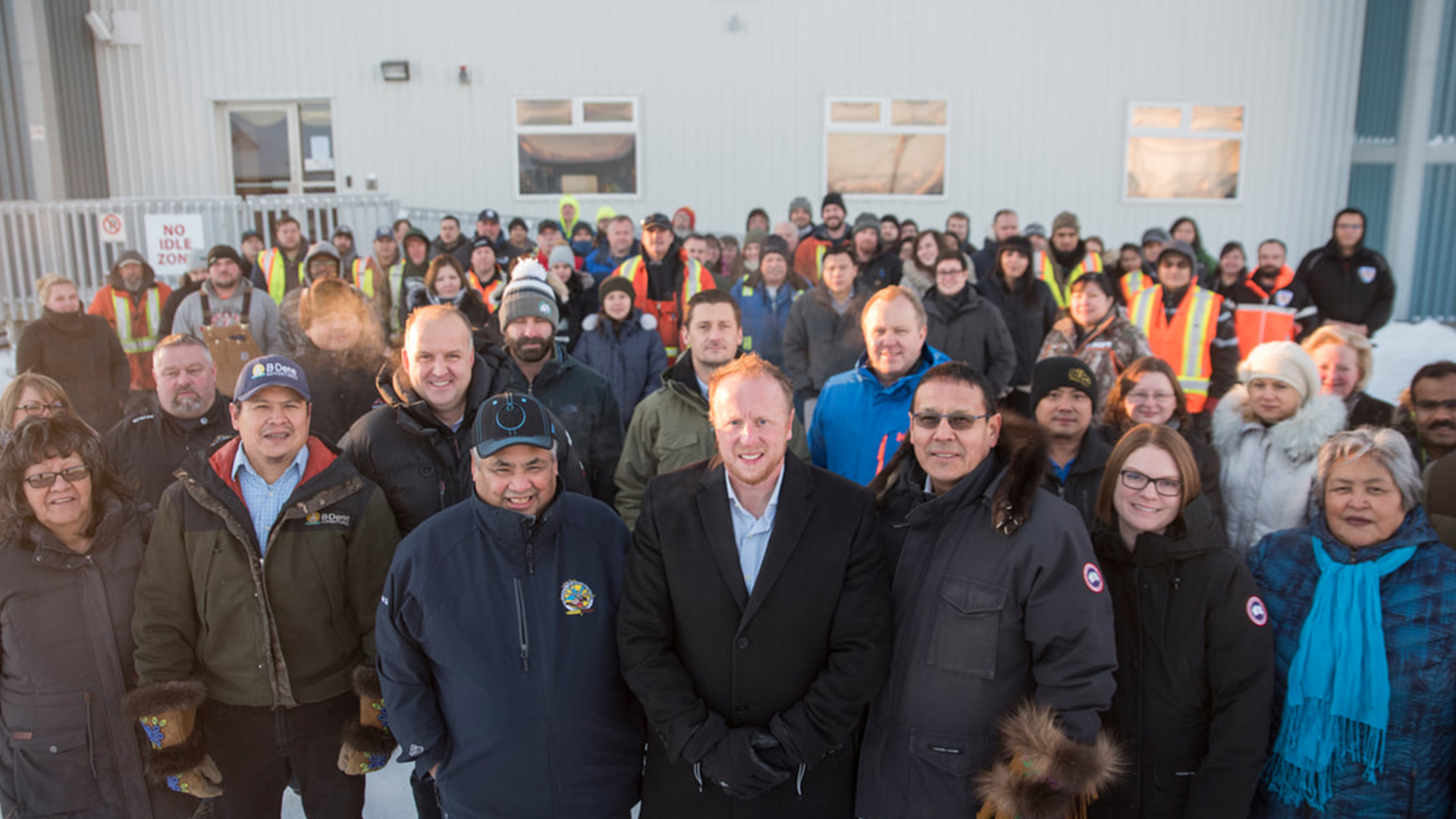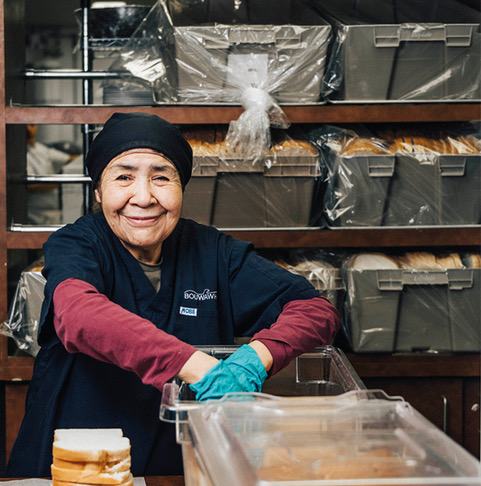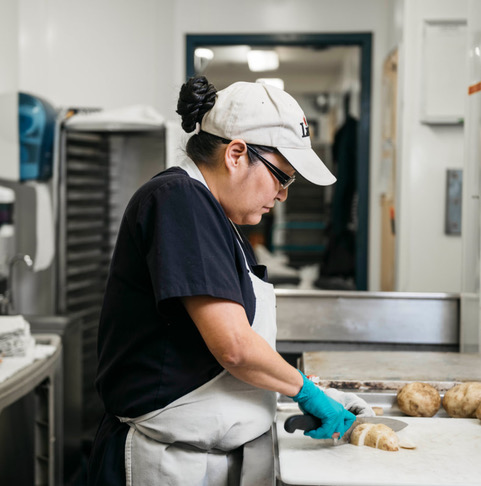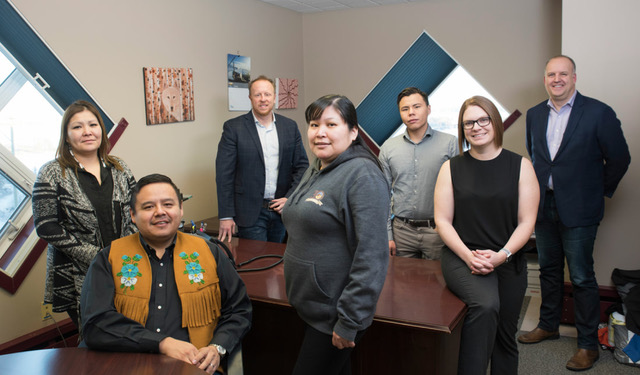Diamonds Paving The Way for Brighter Futures
When diamonds are discovered, industries owned and led by Indigenous Peoples are given the opportunity to rise. We learn how.

Nestling in the northern shore of Great Slave Lake is the City of Yellowknife, the capital of the Northwest Territories (NWT)) in Canada. The Dene name for the NWT is “Denendeh” meaning “Land of the People”. The land is rich in minerals and nature, with scenic walking trails and the clearest blue skies. From late August to April it is one of the best places to see the emerald glow of the northern lights, with temperatures ranging from plus 30 degrees Celsius to minus 60 degrees Celsius at the extremes. The Indigenous communities, which represent more than half the population of the Northwest Territories, form the heart of its vibrant society today.
Yellowknife and its surrounding areas have been home to Indigenous Peoples (Yellowknives, Chipewyan, Tlicho and Métis) for centuries, long before it was established as a town in 1934 and declared the Capital of the Northwest Territories in 1967. Originally, the Dene traded fur and tools made from copper deposits near the Arctic Coast. Then, as uranium, silver and then gold were discovered in the 1930s, Yellowknife rapidly became a mining town, paving the way for the discovery of diamonds in 1991.
Darrell Beaulieu has served three terms as the Chief of the Yellowknives Dene First Nation and is now CEO of Denendeh Investments Incorporated (DII). His business holds investments on behalf of the Dene in electrical generation, transmission and distribution in the southern part of the Northwest Territories, as well as real estate, communication infrastructure maintenance and operations across Yukon, Northwest Territories and Nunavut. It also consists of a mining exploration company (DEMCo) and one affiliated area of his business, Denendeh Food Services Ltd, helps to distribute food for the diamond mines. Beaulieu, who was born and raised in Yellowknife, remembers the days before the very first diamonds were found. “During the days of the gold mines and uranium mines there was very little economic participation from Indigenous peoples, I’m 63 now so I remember. There were a few jobs that became available, but that was labor, not careers. It was very separate and people didn’t mix, it took a while for that to happen.”


Everything changed in 1973 when the Canadian government introduced a new way to negotiate Aboriginal land claims through the federal Comprehensive Land Claims process, which marked the beginning of modern Indigenous rights negotiations in the Northwest Territories. Most importantly, it gave Indigenous peoples the ability to participate in resource management regimes that apply throughout their settlement areas. “The Akaitcho and Dehcho regions are still negotiating with the federal government to implement treaties eight and eleven negotiated with the British Crown in the late 1800’s and early 1900 as understood by the Dene,” Beaulieu adds, “sharing the land and resources and establishing coexistence agreements.
“In my experience, Indigenous Peoples are very proactive,” says Beaulieu. “Also, we take a balanced approach to development. Wildlife, water and nature are critical to us and we want to ensure that development does not have any adverse effect on the environment, so by actively participating we can help set the tone for the development of diamond mines and other resource development in the Northwest Territories. In terms of employment and business opportunities, Indigenous people in Canada and the NWT want to participate from the get-go, from the development to the operations right to the governance and reclamation of a mine.”
Over the years, the Yellowknife diamond industry has produced an estimated 14 million carats of diamonds and a total of $2.08 billion economic benefit to Canada. “The diamond mining across the Northwest Territories has helped quite a bit in terms of employment, training and getting people involved in various sectors of the diamond mining world, whether it’s in management or the supply chain,” says Beaulieu. “ Prior to diamond mining coming up north, there may have been ten or 20 Indigenous businesses servicing the mining industry, but once diamonds came along there were up to one hundred businesses. Everything from building winter ice roads to trucking, catering and maintenance could be covered through Indigenous-owned businesses,” employing hundreds of Indigenous peoples throughout the NWT and beyond.

One such business is the Yellowknives Dene First Nations-owned Det’on Cho, launched in 1988, which has grown into one of the largest employers of the Northwest Territories. In 2019 it won the Economic Leadership of the Year Award, beating both Indigenous and non-Indigenous businesses. The company provides logistics, construction, trucking, catering, environmental and aviation services among many others to some of the world’s leading diamond mines including De Beers Group, Diavik Diamond Mine, Rio Tinto and Arctic Canadian Diamond Company. Among the hundreds of Det’on Cho employees providing services and supplies in all sectors of the NWT economy, are men and women from the three Indigenous groups of the Northwest Territories; First Nations, Inuvialuit and Métis as well as non-Indigenous people from other parts of Canada and throughout the world.
“What I take personal pride in, is creating a highly functioning company that is a crucial part of the diamond supply chain,” says Paul Gruner, CEO of Det’on Cho. “We’re not just a joint venture, we directly impact the productivity of the mines we work with.”
“It’s true that the impact benefit agreements are where it all started, but we’ve grown in our own right as a corporation, with profitability, shareholders, risk management and governance. We service nearly every need of the major mines across the Northwest Territories and we’re a material part of the supply chain. We now have eight hundred employees and we’ve developed a full-scale CSR platform that covers environmental protection and job creation. When a mine closes, I believe we’re best placed to help plan and manage its reclamation – a process which is a multi-billion-dollar enterprise. As a business formed and led by Indigenous Peoples, we are the natural stewards of the land.”
Gruner is looking forward to a future where businesses like Det’on Cho expand far beyond the diamond industry and Northwest Territories. “We’re materially investing in building companies that execute the work. We don’t just want a couple of jobs, we want to be adding value, expanding into other industries. We have the skills and experience to enter any industry.”
Beaulieu agrees. “A future of Indigenous drivers, full participants and beneficiaries of the economy, providing stable home-grown employment, business services and critical investment provides certainty for private equity and resource developers.”
As Indigenous entrepreneurs and business leaders with a natural desire to protect nature continue to rise, this is a future we can all look forward to.
